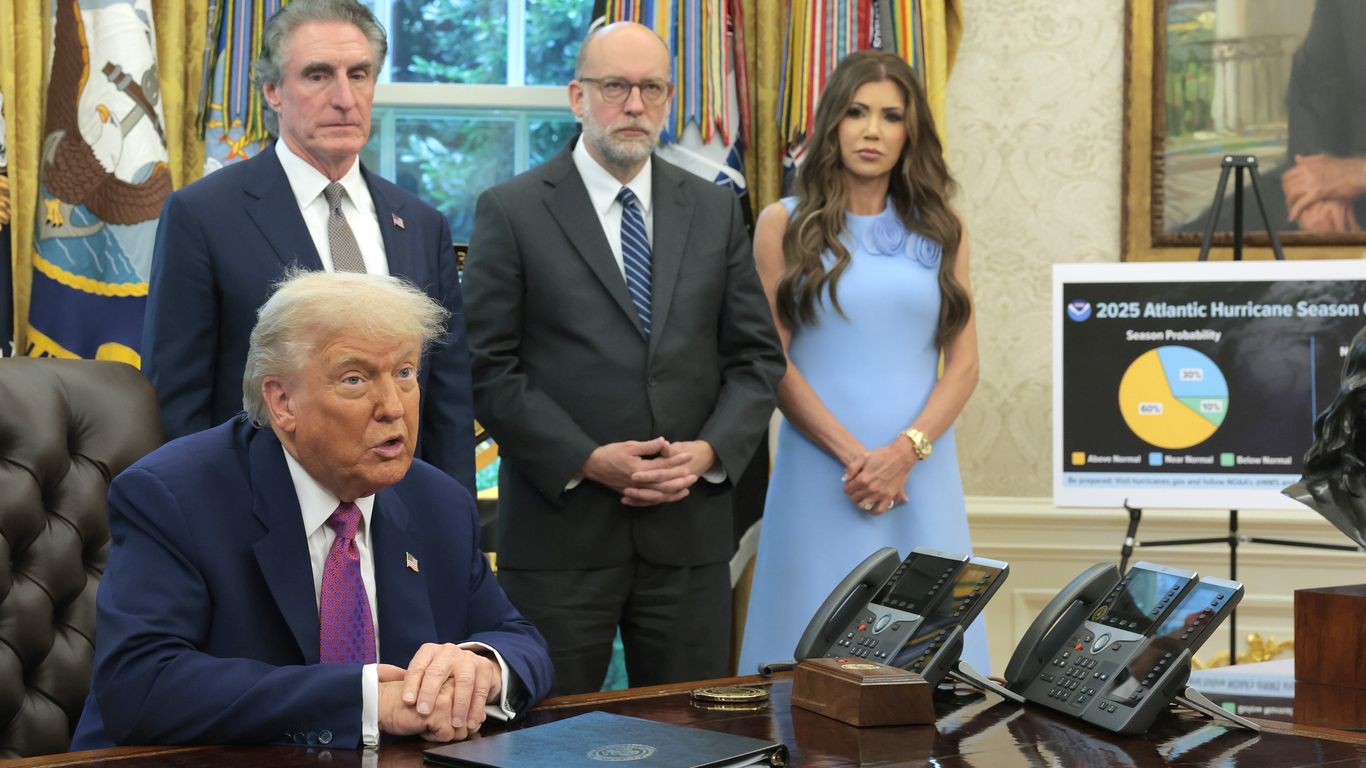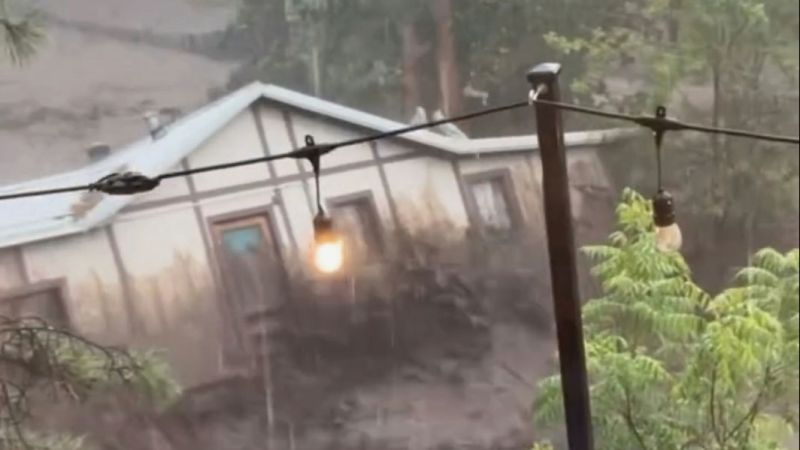FEMA Faces Budget Constraints in Texas Floods

Introduction
In the aftermath of the devastating Texas floods, FEMA officials have revealed that their search and rescue efforts were delayed due to budget limitations imposed by DHS Secretary Kristi Noem. This has sparked concerns about the impact of budget constraints on emergency response efforts, especially in the face of increasingly severe natural disasters. The Washington Post reported that the deployment of resources to Texas was hindered by strict regulations from the Department of Homeland Security, resulting in a slower response time and potentially putting lives at risk.
Context
This is not the first time that budget limitations have affected FEMA's response to a disaster. In 2017, the agency faced criticism for its handling of Hurricane Maria in Puerto Rico, with many citing insufficient funding as a major factor. The current situation in Texas highlights the need for more flexibility and resources for emergency response agencies, particularly in the face of climate change and its increasing impact on natural disasters. As the
About the People Mentioned
Kristi Noem
Kristi Noem is a South Dakota politician born on November 30, 1971, in Watertown, South Dakota. She grew up on a family ranch and farm in rural Hamlin County. Noem graduated from South Dakota State University with a Bachelor of Arts degree in Political Science in 2011. She began her political career in the South Dakota House of Representatives, serving from 2006 to 2010, including a stint as Assistant Majority Leader. In 2010, she was elected to the U.S. House of Representatives, representing South Dakota's at-large congressional district for four terms until 2019. In 2018, Noem made history by becoming South Dakota's first female governor. She was reelected in 2022. During her tenure as governor, Noem focused on reducing taxes, cutting regulations, and promoting economic growth. Her approach to the COVID-19 pandemic, which included not implementing statewide lockdowns or mask mandates, garnered national attention. Noem is known for her conservative stance on issues like gun rights and border security. Noem has written two books: *Not My First Rodeo: Lessons from the Heartland* (2022) and *No Going Back* (2024). In January 2025, she resigned as governor after being confirmed by the Senate as the United States Secretary of Homeland Security, the first South Dakotan to hold this position. As Secretary, she oversees a department with over 260,000 employees and a budget exceeding $100 billion. Recently, while in her role as Homeland Security Secretary, Noem was involved in a controversial incident in Los Angeles where a U.S. Senator was forcibly removed from a press conference. Despite this, she continues to be a prominent figure in U.S. politics, particularly in conservative circles.
About the Organizations Mentioned
FEMA
The **Federal Emergency Management Agency (FEMA)** is a U.S. government agency under the Department of Homeland Security, established in 1979 by President Jimmy Carter to coordinate disaster response and recovery nationwide[1][2]. Its core mission is to manage federal assistance when disasters overwhelm local and state capabilities, providing expert support, funding, and resources to affected communities[1][2]. FEMA also focuses on preparedness and resilience-building before disasters through education, training, and engagement with local governments and organizations[2]. Historically, federal disaster aid dates back to the early 1800s, but FEMA was created to unify emergency management and civil defense efforts under one agency. Since its inception, FEMA has evolved to cover a broad range of hazards, including natural disasters like hurricanes, floods, and earthquakes, as well as man-made crises such as terrorist attacks[1][2]. The agency operates 10 regional offices and employs over 20,000 people, with workforce surges during major emergencies reaching up to 50,000[2]. FEMA's key achievements include coordinating large-scale federal responses to catastrophic events such as Hurricane Katrina, the Oklahoma City bombing, and more recently, the 2024 hurricanes Helene and Milton, where it approved billions in aid and deployed thousands of responders[1][2]. Beyond immediate disaster response, FEMA administers programs like low-interest disaster loans, grants for infrastructure rebuilding, and training for first responders[1]. It also manages floodplain mapping and flood insurance regulations critical for risk management and urban planning[3]. Currently, FEMA remains a pivotal agency in disaster management, increasingly integrating technology and data-driven strategies to improve emergency preparedness and response efficiency[1][2]. Its role extends to coordinating with state and local governments, nonprofits, and federal partners to enhance national resilience against evolving risks. Overall, FEMA represents a vital intersection of government, technology, and community engagement in safeguarding the United States from a wide array of emergencies.
DHS
## Overview of the Department of Homeland Security (DHS) The Department of Homeland Security (DHS) is a cabinet-level executive department of the U.S. federal government, established in 2003 in direct response to the September 11, 2001, terrorist attacks[1][4]. Its primary mission is to safeguard the United States from a wide range of threats—including terrorism, cyberattacks, natural disasters, and border-related risks—by coordinating efforts across federal, state, local, and private sectors[1][2][4]. With an annual budget of approximately $90–185 billion and over 240,000 employees, DHS is the third-largest federal department, reflecting its broad mandate and operational scale[1][4][6]. ## What DHS Does DHS operates through a network of agencies and directorates, each specializing in different aspects of domestic security. Its core functions include: - **Counterterrorism:** Preventing and responding to terrorist threats, both physical and cyber, through intelligence gathering, law enforcement coordination, and critical infrastructure protection[1][2][4]. - **Border and Transportation Security:** Managing and securing U.S. borders, ports, and transportation systems, including the oversight of Customs and Border Protection (CBP), Transportation Security Administration (TSA), and Coast Guard[1][2][3]. - **Immigration and Customs Enforcement:** Enforcing immigration laws, including the detention and removal of individuals who pose national security or public safety risks[2][5]. - **Cybersecurity:** Defending federal networks and critical infrastructure from cyber threats, while promoting public-private partnerships to enhance national cyber resilience[1][4]. - **Disaster Preparedness and Response:** Leading federal disaster response efforts through the Federal Emergency Management Agency (FEMA), coordinating with first responders, and supporting community recovery[1][3][6]. ## History and Key Achievements DHS was created by the Homeland Security Act of 2002, consolidating
Washington Post
The Washington Post is a leading American daily newspaper headquartered in Washington, D.C., known for its influential political reporting and broad national audience. Founded in 1877 by Stilson Hutchins, it initially struggled financially and editorially until 1933, when financier Eugene Meyer purchased it out of bankruptcy and revitalized its reputation. The paper’s guiding principle, established by Meyer, was to "tell ALL the truth so far as it can learn it," setting a standard for rigorous journalism[1][2][4]. Under the leadership of the Meyer-Graham family—particularly Philip Graham, Katharine Graham, and later Donald Graham—the Post became a dominant force in American journalism. It expanded by acquiring rival publications and became Washington's principal morning newspaper, eventually holding a near-monopoly status in the region[1][4]. The paper gained international prominence for its pivotal role in publishing the Pentagon Papers in 1971, which exposed government deception regarding the Vietnam War, and for investigative reporting by Bob Woodward and Carl Bernstein during the Watergate scandal, which led to President Richard Nixon’s resignation in 1974[2][5]. The Post has earned 76 Pulitzer Prizes, ranking second only to The New York Times, and is regarded as a newspaper of record in the United States. Its journalists have received numerous prestigious awards, including Nieman Fellowships and White House News Photographers Association honors, reflecting its commitment to excellence in political and investigative journalism[2][5]. In 2013, the Graham family sold The Washington Post to Jeff Bezos, founder of Amazon, for $250 million, ushering in a new era focused on digital innovation and expanding its digital subscriber base, which reached 2.5 million by 2023. Despite a decline in print subscribers to below 100,000 by 2025, the Post remains a key player in business and technology news, maintaining foreign bureaus in London and Seoul to provide comprehensive global coverage[2]. Notable for its histori

















